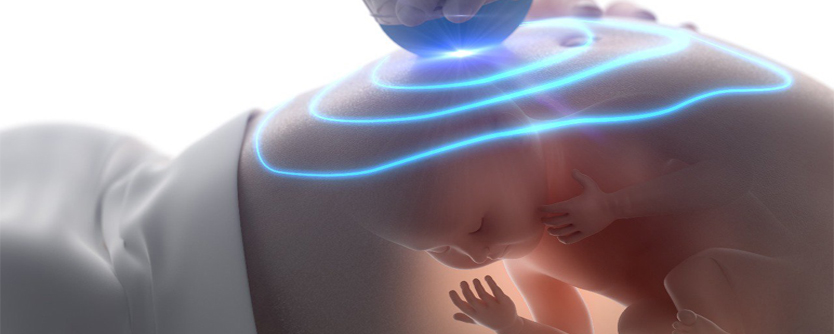Ultrasound scans are commonly prescribed by the doctor to monitor one’s pregnancy, trimester by trimester.
[the_ad id=”16416″]
An ultrasound scan is one which sends waves through your baby in order to show the baby’s form and development. Ultrasound Scan Pregnancy is generally used to get health and activities of the babies.
Getting Ultrasound Scan Pregnancy each trimester is something that you can look forward to as it is painless and right from the start it can show you your baby growing stage by stage. These ultrasounds arm your doctor with all the information they need to mark and check the progress of your pregnancy. This can be the growth and development, anomalies and even setting the due date for your delivery. What is even better is that these scans unlike X-rays do not have any radiation and is therefore extremely safe for you and your baby.
We now look into what happens in the scans at every trimester.
First Trimester
So, your home pregnancy kit shows a positive result; then you rush to the doctor for a blood test and your very first ultrasound! Congratulations!
Typically, your first ultrasound will be done between the first 6 and 8 weeks of your pregnancy. This particular ultrasound is done through the vagina: the doctor will insert a slender probe into your vagina. But don’t worry! It is absolutely painless. In this test, the doctor will determine the heartbeat of the child and measure the child to determine its age. From this, your doctor will also give you a due date. The test is also done to rule out an ectopic pregnancy (wherein the baby resides in the fallopian tube rather than in the uterus) and to set milestones for your forthcoming visits. It is here that the doctor tells you if you will have multiple children in the same pregnancy (twins, triplets, etc.).
Another ultrasound is then scheduled to be carried out at 11-13 weeks. This is known as a nuchal translucency test which happens in two parts: an ultrasound and a blood test. The test is done to determine any abnormalities or neural tube defects. The test is especially done to test for Down’s syndrome, trisomy, and heart defects. The blood test measures a set of hormones to check for chromosomal abnormalities. In this ultrasound, a gel is applied to your abdomen; a transducer is then run over your abdomen and images displayed on a screen.
You are now in the middle of your pregnancy.
Second Trimester
This is the stage in which you are visibly pregnant! It is exciting, mainly because you are midway through your pregnancy. The ultrasound in the second trimester is done at 18-20 weeks.
This test is called the anatomy scan. Your doctor will walk you through all the development that has happened so far in your baby: toes and fingers, the face, the heart, and other organs. The doctor will again check for any abnormalities or defects. Essentially, the anatomy scan is deemed the most detailed test the doctor will conduct before your baby is born.
At this stage, if your nuchal translucency test revealed abnormalities, the doctor may also request for an amniocentesis. This is done to check especially for Down’s syndrome and also if you are above the age of 35 years or if you have known cases of Down’s syndrome in the family. In the test, a needle is inserted into your belly to take a sample of the amniotic fluid for testing.
Congratulations are in order as you safely enter the third and final trimester of your pregnancy!
Third Trimester
For most, their last ultrasound ends at the anatomy scan as no scan is really required in the third trimester. This trimester is spent monitoring other signs such as contractions or placenta at the cervix. But, these are the events which may require a scan in the third trimester,
- If you are above the age of 35 years
- If the placenta has not moved away from the cervix (then a C-section is recommended)
- If you have preterm contractions
- If you are past your due date
- If you have less amniotic fluid
- If there is bleeding
If you had developed diabetes during your pregnancy (gestational diabetes), then, a Doppler ultrasound is done in the last few weeks to measure the blood flow to the baby.
Now that you are equipped with all this information, it is time to sit back and really enjoy your pregnancy, a trimester at a time!
Source:

